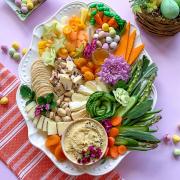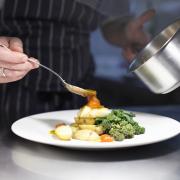Janet Reeder asked local nutritional biochemist Jeannette Jackson for her views on the latest dietary sensation and how we can be healthier in 2016

Jeannette Jackson is a nutritional biochemist who works for 52 Alderley Rd private hospital in Wilmslow. She is also director of the Alderley Edge based 24/7 Health & Nutrition Ltd, the company behind a new product called SheProtein a protein powder for women designed to feed muscles and boost concentration and memory mid afternoon.
We asked her whether the trend for ‘clean eating’ is something that the health conscious people of Cheshire should be adopting.
Clean eating: is this a myth?
No, clean eating is not a myth: effectively clean eating is simply about eliminating junk food (high fat/sugar/salt) and processed food from the diet and replacing it with natural whole fresh foods, rich in vitamins and minerals.
Poor dietary habits can creep up on us. When we feel tired, we reach for a snack, feel more tired, reach for more snacks and before you know it cakes, biscuits, chocolate and wine (!!) are a staples on the weekly shopping list. Clean eating requires us to become more conscious of the food choices we are making and retrain our mind AND body to appreciate food in its natural clean form.
How do you feel about detoxing?

Detoxing is a part of the clean eating process - if anyone feels they are running on empty, tired all the time or have difficulty sleeping, then detoxing is a good idea. The body has natural detoxification processes, it’s a natural part of our physiology to help the body get rid of unwanted chemicals from processed foods, or chemicals we are exposed to in the environment. ‘Detoxing’ in the nutritional sense means not over burdening the body with more chemicals to enable out natural physiology to work its magic as efficiently as possible.
Aloe Vera juice can help support the detoxification process as its pharmacological activity in the form of antioxidants that help to clean the bowel, substances such as aloin anthroquinines and saponins help with tissue cleanse and renewal.
Are diets good for you?
Diets can be good for you if you apply yourself and lose the weight and then keep it off. Many people are looking for the elixir of diets - eat what I want and still lose weight. So they lose the weight and then gain the weight. This yo-yo dieting can be exhausting mentally, physically and emotionally.
My book The Drop Zone Diet published by Penguin Books helps people to overcome this unhealthy yo-yo pattern by providing the body with foods that help feed the tissues on a cellular level so that once you’ve lost the weight you also lose the cravings for sugar.
What are the foods we should be eating now?

Anything green (high in healthy heart magnesium and potassium), whole foods such as beans, pulses, grain, brown rice. Lean white meats from turkey, chicken, cod, haddock and oily fish such as mackerel, sardines and tuna.
What is your personal approach to diet?
Laughter is the best medicine. Stress is the killer: I believe you can eat the cleanest diet possible but if you’re experiencing stress on a regular basis your body will become sick. So it’s important to balance a clean diet with exercise for mind and body. Yoga, meditation, walking, gym activity - all help with the purification and detoxification of the body as they boost our lymphatic system, our waste disposal system within the body and helps to clean the blood.
How much red meat should we be eating?
Meat is a rich source of protein and I don’t think we eat enough protein regularly enough throughout the day (especially women) as it can be hard finding portable sources of protein. SheProtein is a new ‘on the go’ protein powder for women which you take at 3pm to stop afternoon energy dips, to feed the muscles and boost concentration and memory mid-afternoon.
Red meat has many health benefits and meats such as beef, lamb and pork are rich in vitamin D and a host of B vitamins which are important for the release of energy from food. They also contribute to the health of the blood and nervous system. The Department of Health recommends eating no more than 70g (2.5oz) of red meat each day which is equivalent to two slices of roast beef or one lamb chop.
Alternative sources of quality protein include beans, pulses, white meat and fish.
For more details about detoxing and healthy eating please visit www.jeannettejackson.co.uk



























